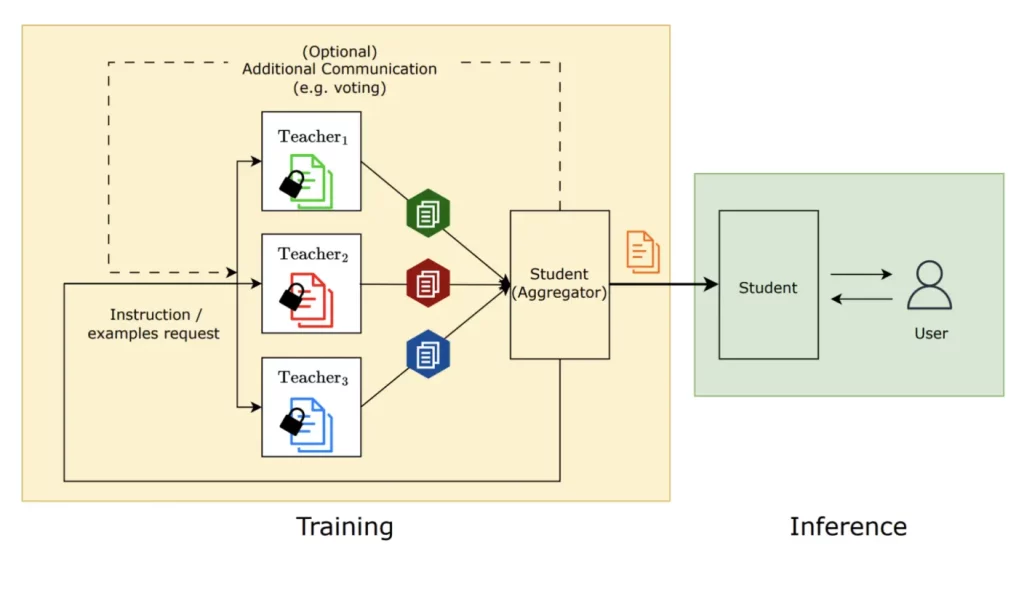Google has introduced a groundbreaking AI framework called “Social Learning,” aimed at enhancing the collaborative capabilities of language models without compromising user privacy. This framework allows AI models to learn from each other through natural language interactions, enabling them to share knowledge and improve performance on various tasks.
The framework involves a “student model” learning from multiple “teacher models”

Through the Social Learning framework, teacher models can impart knowledge to student models without directly sharing sensitive or private data, ensuring privacy protection while facilitating effective learning.
In this framework, student models learn from multiple teacher models, each proficient in specific tasks, such as spam detection, solving math problems, or answering questions based on text. By leveraging human-labeled examples, teacher models can teach students without the need to exchange original data, addressing privacy concerns associated with data sharing. Additionally, teacher models can synthesize new examples or generate instructions for tasks, further enhancing the learning process.
Experiments have demonstrated the efficacy of social learning in improving the performance of student models across various tasks. Synthetic examples generated by teacher models have shown comparable effectiveness to original data, while significantly reducing privacy risks. Similarly, instructions generated by teacher models have proven to enhance student performance, demonstrating the adaptability of language models in following instructions.
To ensure privacy protection, researchers have employed metrics like Secret Sharer to quantify data leakage during the learning process. Results indicate minimal leakage of private data, affirming the framework’s ability to teach without revealing specifics from the original dataset.
By mimicking human social learning processes, these models can effectively share knowledge and improve each other’s performance while upholding user privacy. This approach holds promise for the development of privacy-conscious AI systems in various domains. Moving forward, researchers aim to further refine the Social Learning framework and explore its applications across different tasks and datasets.
Related:
- Big Discount: AOOSTAR R1 N100 NAS Mini PC Only For $159
- Get latest Oneplus 12 Phone for $699 on Geekwills
- Get $100 Off on Vivo X100 Pro at Giztop
- Get the Realme GT5 Pro phone on Giztop for $599
- Xiaomi 13 Ultra Premium Camera Phone is now only $799
(Source)





